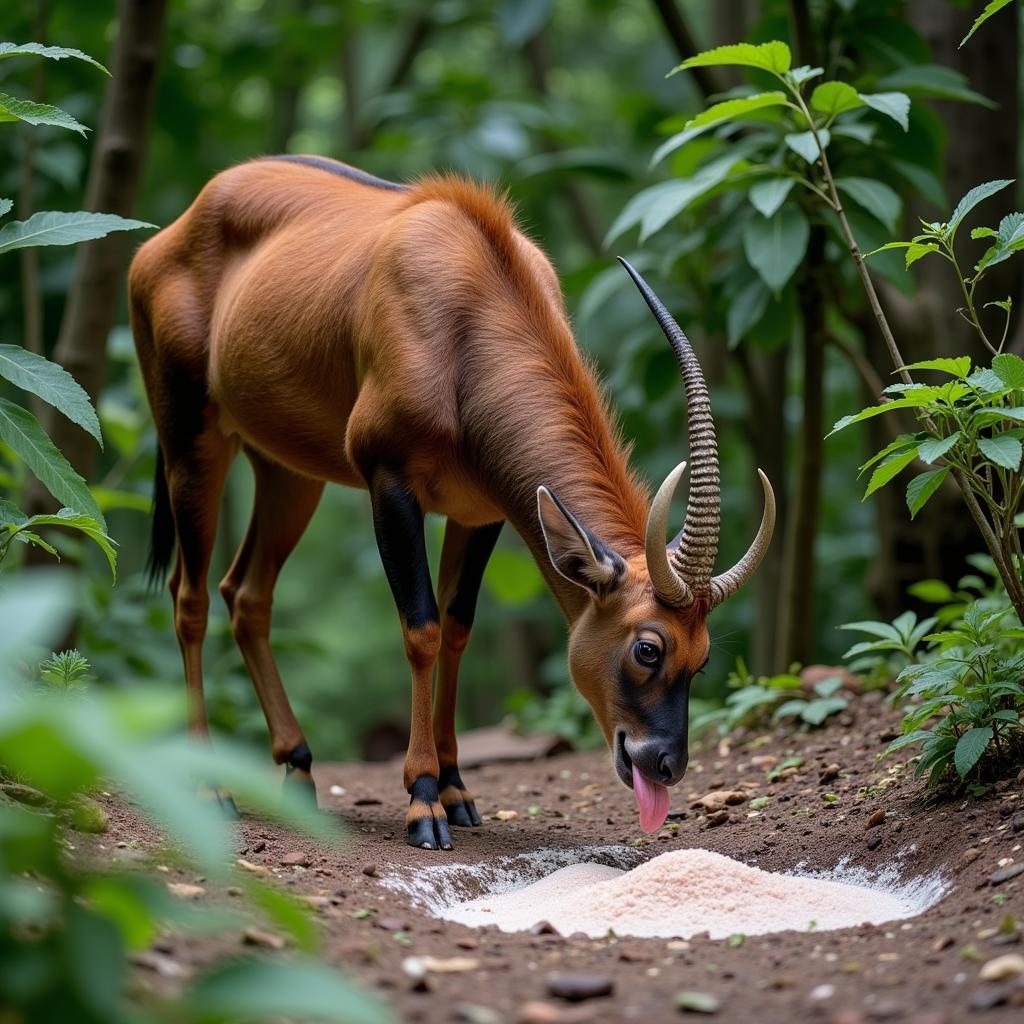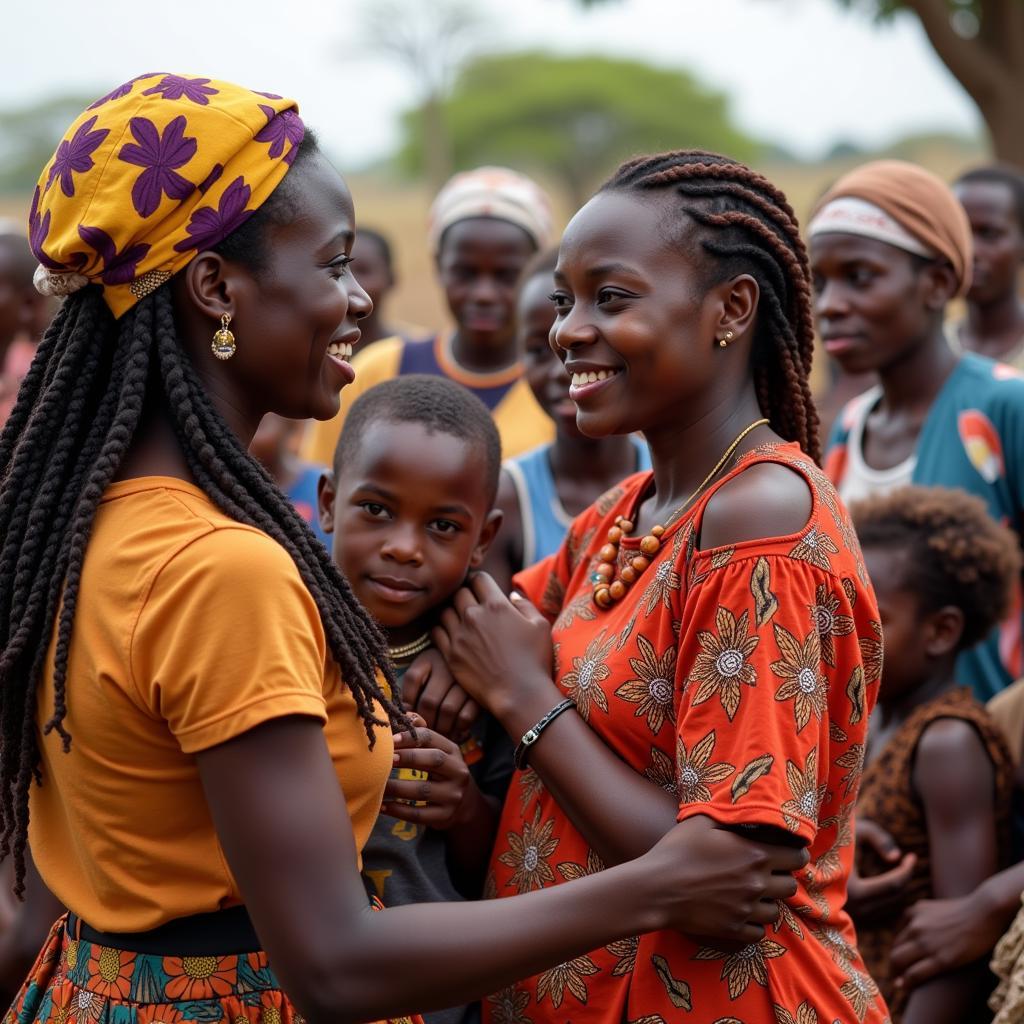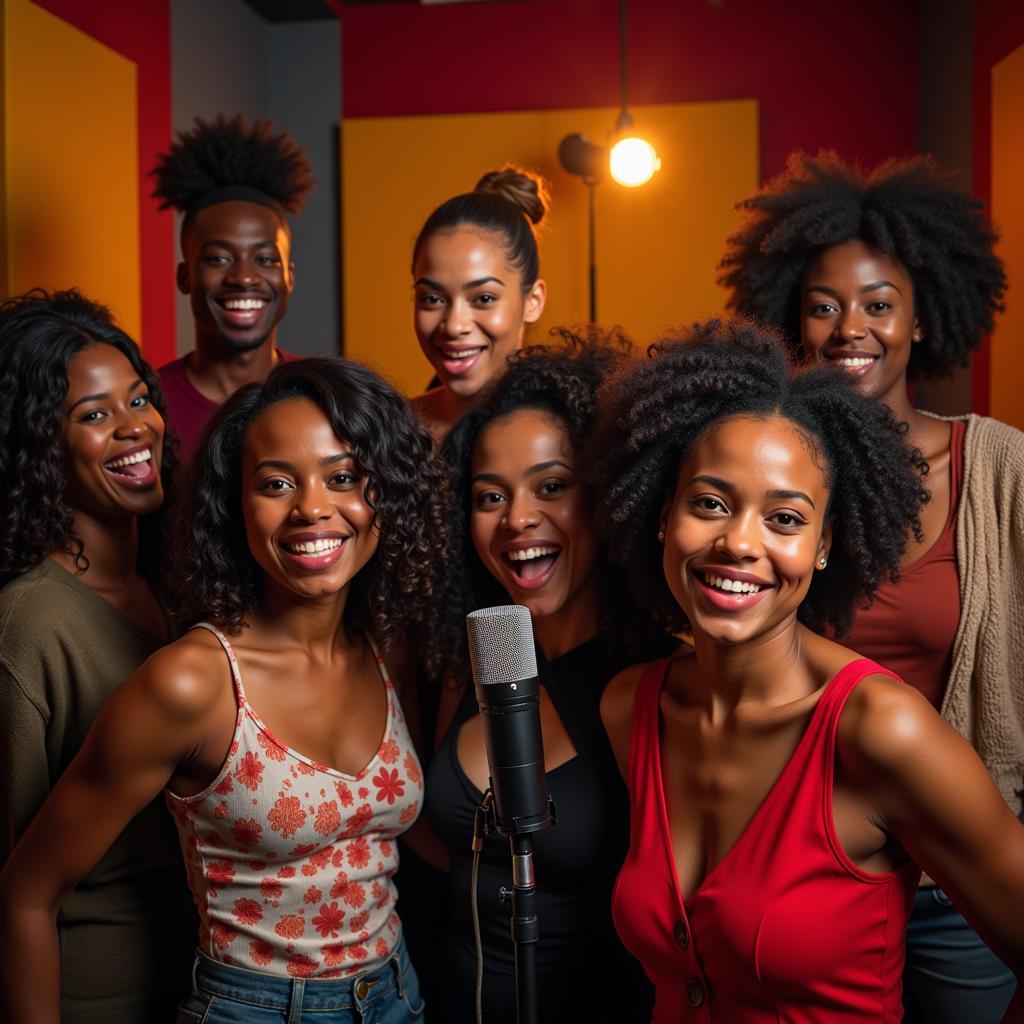Decoding the African Child Meme: A Journey Through Internet Culture and Representation
The “African Child Meme” has become a ubiquitous presence online, sparking laughter and controversy in equal measure. This article delves into the complex world of this internet phenomenon, exploring its origins, evolution, and the broader implications for representing African children in the digital age. We’ll examine the ethical considerations, the cultural impact, and the role of social media in shaping perceptions of Africa.
The Rise of the African Child Meme
From the “Success Kid” to the “Distracted Boyfriend” meme, internet culture thrives on relatable, shareable content. The “african child meme” joined this digital lexicon, often depicting children in various settings, sometimes humorous, sometimes poignant. It’s crucial, however, to understand the context surrounding these images and the potential for misrepresentation. Are these memes harmless fun, or do they perpetuate harmful stereotypes? This question is at the heart of the debate surrounding the “african child meme”. Check out this insightful article about the afraid african child meme.
The pervasiveness of these memes requires a deeper understanding of their impact, particularly on how the world perceives Africa and its people. This isn’t just about fleeting online trends; it’s about shaping narratives and challenging preconceived notions.
Navigating the Ethical Landscape of the African Child Meme
The use of images of children, especially vulnerable children, raises important ethical concerns. Consent and privacy are paramount. Do the children depicted in these memes have a say in their online presence? Who profits from their image being shared millions of times? These are crucial questions that demand careful consideration. What are the long-term consequences of such digital exposure? The ethical implications extend beyond individual cases to the broader representation of African children as a whole. See more about african kid in memes.
The discussion surrounding the “african child meme” is not about censorship but about responsible engagement. It’s about promoting accurate, respectful, and nuanced portrayals of African children. It’s about moving beyond simplistic narratives and recognizing the diversity and complexity of their lives.
Beyond the Meme: Understanding the Real Lives of African Children
It’s essential to remember that the “african child meme” is just a snapshot, a fragmented representation of a complex reality. To truly understand the lives of African children, we must go beyond the digital facade and engage with their stories on a deeper level. This involves exploring the challenges they face, celebrating their resilience, and amplifying their voices. You can find some excellent african gifts ideas.
Education, healthcare, and economic opportunities are just some of the critical areas impacting the lives of African children. By focusing on these real-world issues, we can move beyond the superficiality of the meme and contribute to meaningful change. This requires a conscious effort to seek out authentic sources of information and engage with organizations working on the ground. Learn more about african images photo comment.
The Future of Representation: Moving Beyond Stereotypes
The “african child meme” highlights the power and pitfalls of internet culture. It presents an opportunity to critically examine how we represent marginalized communities online and to advocate for more responsible and nuanced portrayals. The digital landscape is constantly evolving, and it’s crucial to engage in ongoing dialogue about representation, ethics, and the impact of social media on our perceptions of the world. Do you know about the african dancing boy meme?
The conversation surrounding the “african child meme” is a starting point for a broader discussion about cultural sensitivity, digital responsibility, and the future of representation in the online world. It is a call to action to move beyond stereotypes and embrace the richness and diversity of African cultures.
Conclusion: Reframing the Narrative Around the African Child Meme
The “african child meme,” while often humorous, prompts us to consider the ethical and representational implications of sharing images of children online, particularly those from vulnerable communities. Moving forward, it is vital to prioritize respectful, nuanced portrayals that celebrate the diversity and resilience of African children and contribute to a more informed and compassionate understanding of their lived experiences.
FAQ
- What is the origin of the “african child meme”? The exact origin is difficult to pinpoint, but it emerged from various online platforms and evolved through sharing and adaptation.
- Are “african child memes” always harmful? Not necessarily. Some can be lighthearted, but it’s essential to be mindful of potential stereotypes and ethical concerns.
- How can I use these memes responsibly? Consider the context, avoid perpetuating stereotypes, and prioritize respectful representations.
- What are the ethical concerns surrounding these memes? Consent, privacy, and the potential for exploitation are key ethical considerations.
- How can I learn more about the lives of African children beyond memes? Seek out reputable organizations and resources that offer accurate and nuanced information.
- What’s the best way to support African children? Research organizations doing impactful work on the ground and consider donating or volunteering.
- How can I contribute to positive representation of African children online? Share content that showcases their diversity, resilience, and achievements.
Situations and potential questions:
- Scenario: You see an “african child meme” that seems stereotypical. Question: How can I address this responsibly without being overly critical?
- Scenario: You want to share a positive image of an African child online. Question: Where can I find images that are respectful and ethically sourced?
- Scenario: You’re unsure if a particular meme is culturally sensitive. Question: Who can I ask for guidance on this issue?
Further exploration:
For more information on related topics, check out our articles on African Gifts and African Images Photo Comment. You can also learn more about specific meme types like the African Dancing Boy Meme and the Afraid African Child Meme. If you are interested in the wider context of African children in memes, explore the article on African Kid in Memes.
Need help? Contact us 24/7 at +255768904061, [email protected], or visit us in Mbarali DC Mawindi, Kangaga, Tanzania. Our customer service team is always ready to assist you.


